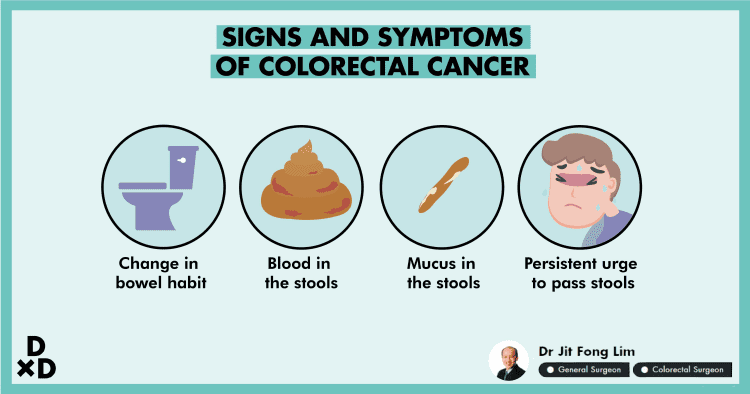Getting pregnant is a miracle, but the real challenge comes after that. Carrying a child to full term, and successfully delivering them takes a lot of hard work! Did you know that in the 1800s, the maternal mortality rate was as high as 40%?
Well, here's the good news! Thanks to medical advancements, there's a 100-fold decline of deaths in women giving birth.
However, pregnancy complications might still arise, so it's important that expectant mothers arm themselves with all the necessary knowledge about childbirth.
Dr Jasmine Mohd, an experienced gynaecologist was invited to host a Human Session. She answered a lot of reader questions on pregnancy, childbirth, and labour.
Here's some of her advice.
What exactly is a 'natural birth'?
In recent years, there's been a lot of hype surrounding natural birth.
According to Dr Jasmine, the term "natural vaginal delivery" technically refers to the spontaneous birth of a fetus without having to use tools like forceps or vacuum.
In layman's terms, a "natural birth" refers to an unmedicated birth, or a birth with as little help as possible.
Meaning to say, the mother delivers the baby without using any pain medication.
Natural birth is not always better
Dr Jasmine explains that the desire for such births might have started as a push back by some women who felt that this "natural process" has been over medicalised.
However, it's important to bear in mind that things may go wrong quickly during childbirth.
This is when doctors have to step in and intervene in order to prevent bad outcomes for mother and/or child.
Intense contraction forces make labour painful

Pain during labour is caused by intense contractions. It can also be due to:
- the pressure on the bladder and bowels by the baby's head, and
- the stretching of the birth canal and vagina.
Pain levels can vary widely from women to women, and even from pregnancy to pregnancy.
Keeping calm is key to easing labour pains
Some mothers are able to manage this simply by keeping calm with breathing techniques.
Others opt for pain relief options like water immersion, shower or massage, and working with a birth support person (doulas).
Getting an epidural does not put you or your child at risk
Many expectant mothers think that epidurals are harmful. This is a misconception!
Epidurals are safe, and do not result in any long-term or short term risk to mother or child.
You can change your mind about pain relief medication during labour
If you're in two minds whether to go for a natural birth, you don't have to decide right now. Even if you've opted for a natural birth, you can request for pain medication during labour.
The epidural starts kicking in within a few minutes of administration, so it's very quick!
Once again, Dr Jasmine stressed that all pain relief options in labour are safe and do not result in any significant risk to the baby and mother.
For first-time mothers, tearing is almost inevitable
First time in labour? Sorry, there's usually going to be some degree of tearing!
Tearing occurs due to a couple of reasons:
- Size of baby
- Need for assisted delivery with forceps or vacuum
- The way the mother pushes the baby
- How the baby comes out
However, if you've given birth before, tearing is usually minimal. This is because the soft tissue resistance is less in women who have delivered before, and your perineum (the area between your anus and vulva) stretches better.
A natural tear is preferable to an episiotomy
The general consensus among medical professionals is that a natural tear is preferable to an episiotomy.
First-time mums don't need an episiotomy if they push well enough, and mothers who have given birth typically do not need one too.
However, as with all other medical conditions, there are always exceptions.
Natural tears can be irregular and extensive. In that case, episiotomies can help reduce the likelihood of tears around the urethra or clitoris. The overall recommendation is for restricted use of episiotomies.
Too tired while pushing? You might need a forceps delivery

Sometimes the mother can get too exhausted to push further! Or it could be that the baby is too big. In these scenerios, Dr Jasmine tends to use forceps to help the mother deliver the baby.
You can actually give birth on all fours

Most women give birth lying down on their back because they are on epidural. If you have opted for epidural, you'll not be able to manage alternative positions well.
However, this is not a standard SOP that you have to follow! Without epidural, there are many alternative birthing positions like lying on your sides, squatting, and even on all fours.
Dr Jasmine suggests for you to explore options with your obstetrician to see what suits you best.
Birthing preparation classes are useful for first-time mothers
Dr Jasmine recommends birth classes for first-time mums. She believes that these classes would help you make better choices during labour by having a better understanding of the process.
Snacks are great during labour

Dr Jasmine encourages mothers to have small snacks and drink in labour! She explains that this can help to keep your energy up. However, she warned against heavy meals as that might make you feel nauseous.
It might also make you more prone to vomiting when you start bearing down in the second stage.
Pooping during labour is totally normal
Think about it: your pelvis is only so big, and it can only hold so much material. When a baby comes through, it pushes out everything that's not solid! So if your rectum is full, everything follows the baby out.
However, there's a way to avoid this situation. Dr Jasmine recommends having an enema. It's a procedure in which liquid or gas is injected into the rectum, to get its contents out. It's safe and it doesn't hurt.
Mummies, you can do it

Pregnancy and childbirth can be distressing but hey, leave the negative thoughts aside and focus on the baby. Relax and enjoy the process cause it only happens once (per child)!
Instead of worrying, take the time to educate (not scare) yourself with the right knowledge, so as to ensure that you make all the best decisions for your baby and yourself.
Then, all you need to do is to breathe and get ready to welcome the best gift of your life!
Ever wanted to ask a health question to a specific renowned specialist in Singapore? Human Sessions are when these expert doctors answer all your questions, for free!
You can Ask A Doctor right away, or view the complete list of Human Sessions here.












